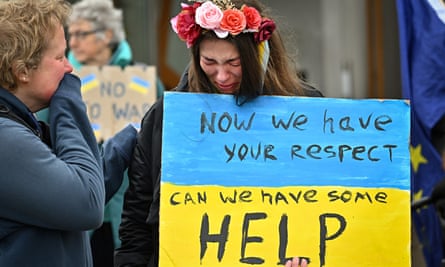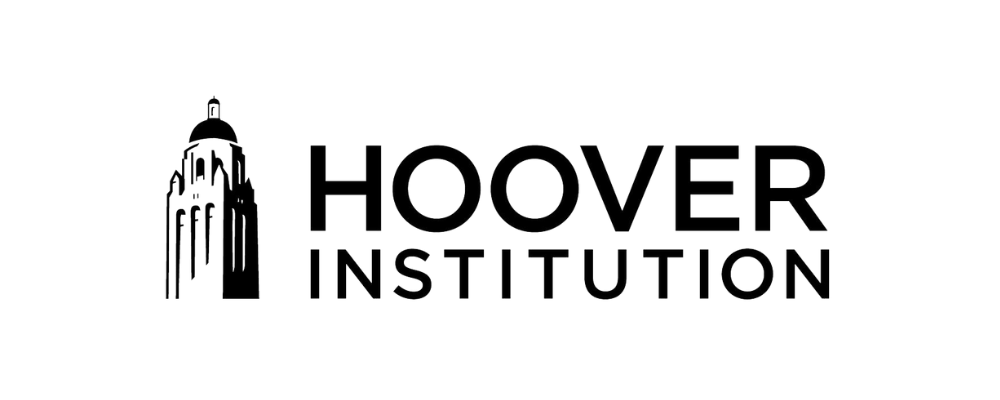As we approach the second anniversary of Russia’s full-scale invasion of Ukraine this Saturday, ask yourself a simple question: is Europe at war? When I put this to a room full of participants at the Munich security conference last Sunday, most of them raised their hands to say yes, Europe is at war. But then I asked a second question: do you think most people in your own country have woken up to this? Very few hands went up.
This was a Munich of painful contrasts. Here, at the conference, were badly wounded Ukrainian soldiers giving us stories from a frontline hell. Yuliia Paievska, a veteran military medic, told us she had seen “streams of blood, rivers of suffering”, and that “children have died in my arms”. “We are the dogs of war,” she said, recalling how she herself was captured in Mariupol, imprisoned for three months and tortured by the Russians. “Give us the weapons,” she concluded, “to kill this war.”
Here, too, was the courage of a Russian Yulia. Yulia Navalnaya came on stage even before the news of the death of her husband, Alexei Navalny, had been fully confirmed, to call for Vladimir Putin to be brought to justice – and to remind us that there is still another Russia, fighting the tyrant. She went on to record a deeply moving, defiant video that you can watch on YouTube.
But stepping outside the conference venue in the Bayerischer Hof hotel, I found weekend crowds enjoying the unseasonal sunshine in nice cafes and bars, shopping in luxurious boutiques or booking a winter break to some attractive holiday destination. Prosperous, even pampered, peacetime life. Europe at war? You must be joking.
At this year’s conference, western leaders acknowledged the reality of a long war more clearly than they did last year, but most are still failing to communicate a sense of existential threat to their own societies. Nor are they taking the urgent actions needed to save Ukraine from more battlefield defeats such as its recent withdrawal from Avdiivka.
There are notable exceptions. Kaja Kallas, the Estonian prime minister recently placed on a criminal wanted list by the Kremlin, has long been one. Mette Frederiksen, the Danish prime minister, is urgent, direct, and matches deeds to words. “We decided to donate our entire artillery,” she told the gathering at which the Ukrainian Yuliia spoke. Denmark has also sent F-16 fighter jets.
Then there’s Petr Pavel, the former Nato general who is now the Czech president. He told us that, working with the Danes and others, the Czechs have identified on world markets 500,000 rounds of 155mm ammunition and another 300,000 rounds of 122mm calibre that could be bought and sent to the hard-pressed Ukrainian forces in the next few weeks. That would enable the Ukrainians to hold the line, Pavel explained, until increased western defence industry supplies come through later this year.

It would also give time for the US House of Representatives to overcome its shameful Trumpian blockage and vote for further military funding for Ukraine. (The most grotesque moment of the conference came when the Republican senator Pete Ricketts compared Putin’s invasion of Ukraine to the “invasion” of illegal immigrants from Mexico.)
Yet on their own, countries such as the Czech Republic and Denmark can’t possibly do what it takes to enable Ukraine to hold off Russia. As the US fatefully hesitates, this requires Europe’s big boys – Germany and France above all – to step into the breach, rapidly buying that ammunition the Czechs have found; acting fast, unbureaucratically and at scale; and explaining to their publics why it’s vital that they do.
President Emmanuel Macron didn’t even come to Munich. His grand rhetoric about the rearmament of our European sovereignty and a “war economy” is not matched by the scale and speed of actual French support for Ukraine.
The German chancellor, Olaf Scholz, is a different story. Since I was highly critical of his “Scholzing” in respect of arming Ukraine a year ago, I want to acknowledge a big change that has happened over the past 12 months. Germany is now the second biggest supporter of Ukraine after the US. This shift to full-hearted support was a kind of Wende (turn) within the Zeitenwende (epochal turning point) that Scholz originally promised just three days after the full-scale invasion in 2022. I will never forget talking to friends in Kyiv last summer who told me how reassured they felt at night when they heard the distinctive, deep boom-boom of the German Gepard air-defence gun. German guns saving lives.
Now it needs a second Wende within the Zeitenwende. The Scholz administration must recognise that if you’re supporting one side in a war against a murderous dictator, you must really want them to win and not merely “not to lose”, the formula to which Scholz and Macron have often reverted. That is not the language of strength, which is the only one Putin understands. As the Ukrainian president, Volodymyr Zelenskiy, observed, speaking in Munich directly after Scholz: “It’s not just a question of weapons. The question is, are you ready psychologically?” The peacetime logic of negotiation, compromise and “win-win” simply does not apply.
Minutes before Zelensky came on stage, the German chancellor dodged a question about why he hasn’t sent Germany’s Taurus missile to Ukraine. Yet leading military experts tell us that deploying long-range missiles such as the Taurus – and its US, British and French counterparts – is the only way in which Ukraine can rapidly put the military pressure back on Russia, by threatening the supply lines through Crimea.
So, the leaders of the larger European countries should take a lesson from smaller ones such as Denmark, the Czech Republic and Estonia. Given the critical situation on Ukraine’s frontline, they must be bolder, faster, more decisive. And they need to find a more direct, more passionate, more inspiring language – the kind of language that would certainly have been used by Scholz’s personal hero, former chancellor Willy Brandt. Societies that are still enjoying a comfortable peacetime lifestyle, and where many apparently believe this war can soon be over with a negotiated compromise peace deal, must be shaken awake. As President Pavel put it, the one sacrifice we can all bring is “the reduction of our own comfort”. Physical comfort, but also psychological.
Europe is at war. It’s not fully at war in the way it was 80 years ago, when most European countries were directly engaged in combat, but it’s certainly not at peace in the way it was 20 years ago, before Putin set out on his path of confrontation with the west. If we don’t face up to the urgency of enabling Ukraine to consolidate its defensive positions, regroup and ultimately win the war that it’s fighting on behalf of all of us, then a few years down the road we will face an even more direct attack from an emboldened, revanchist Russia. So listen to Ukrainian Yuliia and Russian Yulia. Putin must be defeated. That’s the only way to “kill this war”.
Timothy Garton Ash is a historian, political writer and Guardian columnist
“The Hoover Institution is an American public policy think tank and research institution that promotes personal and economic liberty, free enterprise, and limited government.”
Please visit the firm link to site


